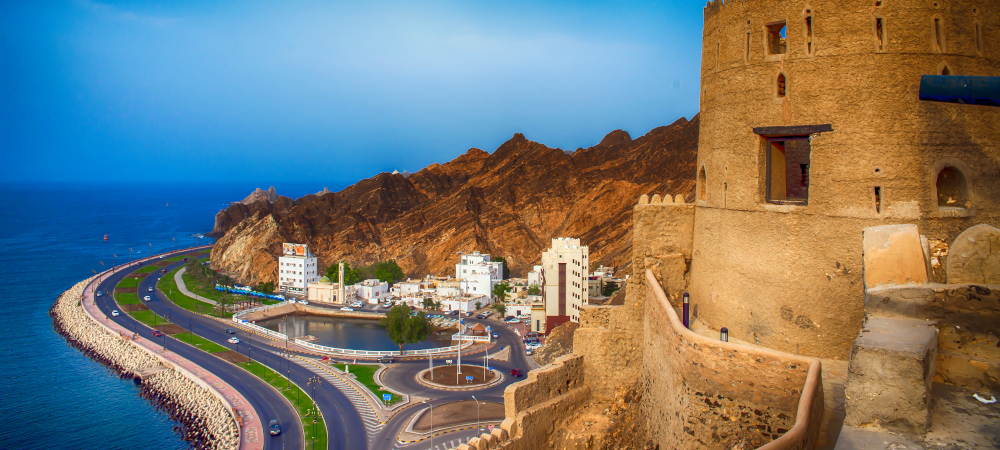The Language Barrier in Oman
Arabic is the official language of Oman, however, English is also widely spoken. Other dialects spoken in the country are Balochi, Urdu, Swahili and French. While it’s likely that you will get by using just English, learning a few Arabic words and phrases is an appreciated sign of respect, and is likely to help in various situations.
Weather & Climate
Oman is primarily desert land, and as such, the country reaches high temperatures and experiences periods of drought. On average the coolest month is January, when temperatures stay between 17° and 25°C. The hottest months are May, June and July which stay between 29° and 40°C.
Oman rarely experience natural disasters, and the largest threat when it comes to the weather is sandstorms. Sandstorms happen throughout the year, often bringing disruption to transport. The country remains dry most of the time, but when rain does fall, it comes in sudden, heavy thunderstorms.
British Embassy in Oman
| Address: | PO Box 185 Mina Al Fahal 116 Muscat Muscat Oman |
| Phone: | (+968) 2460 9000 |
| Fax: | (+968) 2460 9010 |
| Website: | https://www.gov.uk/world/organisations/british-embassy-muscat |
| Office hours: | Local Time Sun-Thurs: 7.30am – 2.30pm |
Emergency Services Contact Information in Oman
| Emergency Service | Contact Number |
| Police Service | 9999 |
| Fire Service | 9999 |
| Ambulance Service | 9999 |
Health in Oman
Anyone who plans to visit Oman is advised to seek advice from a medical professional before travel, in order to determine what – if any – vaccinations are required. As well as ensuring that UK standard inoculations such as MMR and Tetanus are up to date, a doctor might recommend additional injections such as Hepatitis A and B and Rabies.
Those aged nine months or more who are entering Oman from – or via – a country with a Yellow fever risk, must present a Yellow fever certificate to obtain entry.
Medical care in Oman is of a high standard, and is free to residents but charged to expats. For this reason, expats generally take out health insurance and use private healthcare.
Driving while Living in Oman
Public transport in Oman is fairly limited, which is why most visitors and expats opt to hire/buy a car and drive. Most roads are in good condition thanks to recent government spend on infrastructure, and fortunately for expats most signs display English as well as Arabic.
In general, driving in built-up areas such as the capital Muscat is safe, however when venturing further afield additional hazards present themselves. Stray camels and goats are known to wander the roads, and flash flooding can occur after heavy rainfall. Other drivers can often be reckless, and there are significantly more road traffic accidents in Oman than in the UK and other European countries.
Getting your Driving Licence
Expats can drive in Oman with a UK driver’s licence for up to six weeks. After this, visitors and expats must obtain an Omani licence. To do this, drivers must have residential status in Oman. To apply for a driver’s licence in Oman, drivers must first register with the Royal Oman Police (ROP) to arrange an instructor. To do this, the following must be provided:
- Passport
- Residency card
- Fee
- Vision test certificate from an authorised optician
Legal Requirements
Driving is on the right in Oman. The speed limit is 120km/hour (74mph) on the motorway, 90km/hour (55mph) on open roads, and between 40 and 80km/hour (24-49mph) in built up areas. Seatbelts are mandatory for all passengers, and there is a zero tolerance policy when it comes to driving under the influence. It’s illegal to drink in public in Oman, so anything above 0.0% on a breathalyser test will result in severe punishment.
There are frequent ROP checkpoints throughout the country, at which you must pull over and present your passport, licence, and insurance paperwork.


